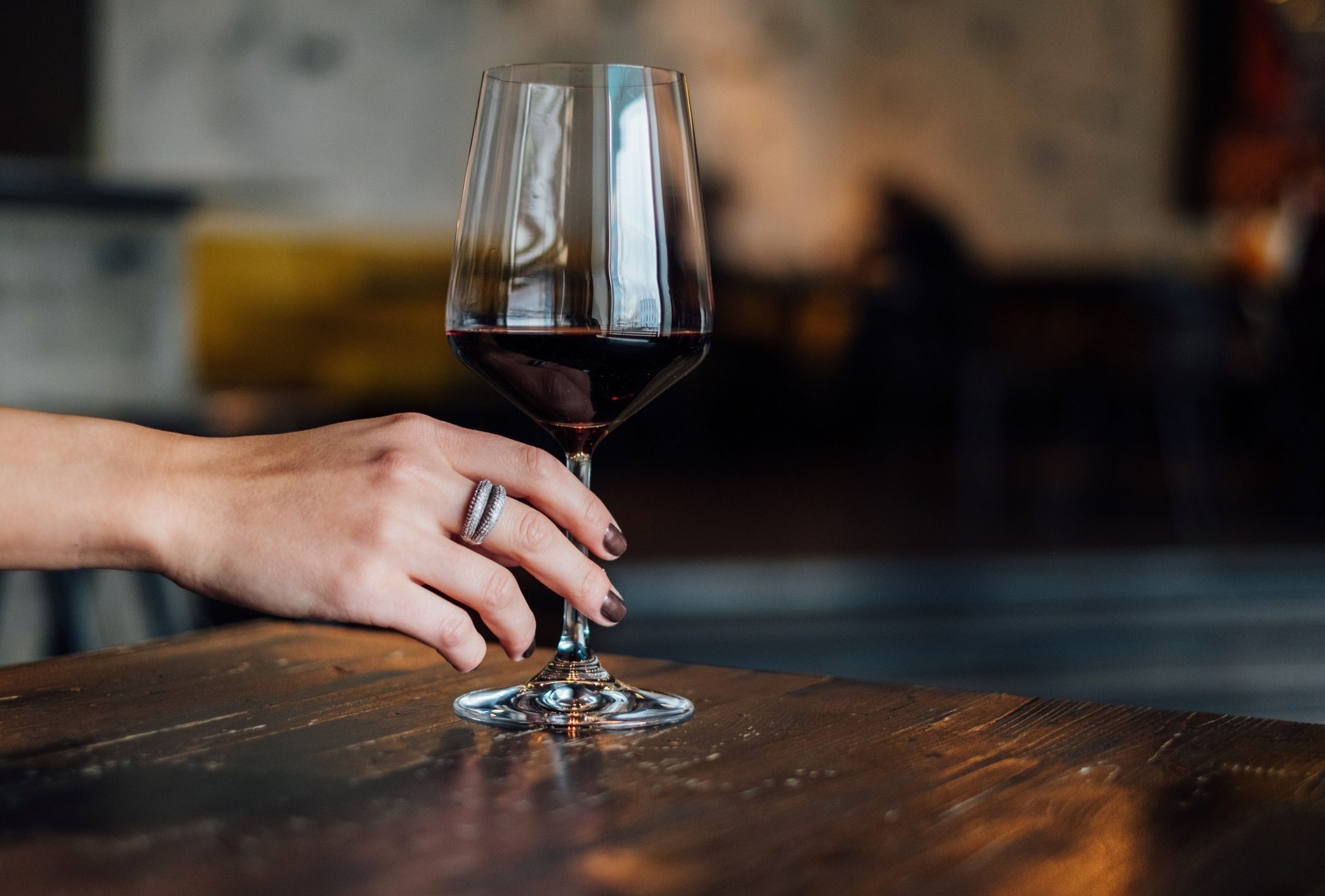
Try mindful, non-alcoholic coping strategies
In this unprecedented era of lockdowns and social distancing, booze has become a major coping tool. A recent survey of 1,540 adults, published in JAMA Network Open, found that alcohol consumption is up 14 percent from a year ago. Women seem particularly vulnerable—especially when it comes to heavy drinking. Another survey showed a 54 percent increase in alcohol sales between March 2019 and March 2020.
This may not be surprising, but alcohol can upend your life almost as much as a pandemic. “Alcohol and other substances can make us feel good in the moment but then the long-term effects and even short-term effects can actually be counter to what they intended to do,” says Brittany LeMonda, PhD, senior neuropsychologist at Lenox Hill Hospital in New York City. “It’s really important that we choose some healthy coping strategies.”
Here are some healthy, mindful, non-alcoholic alternatives.
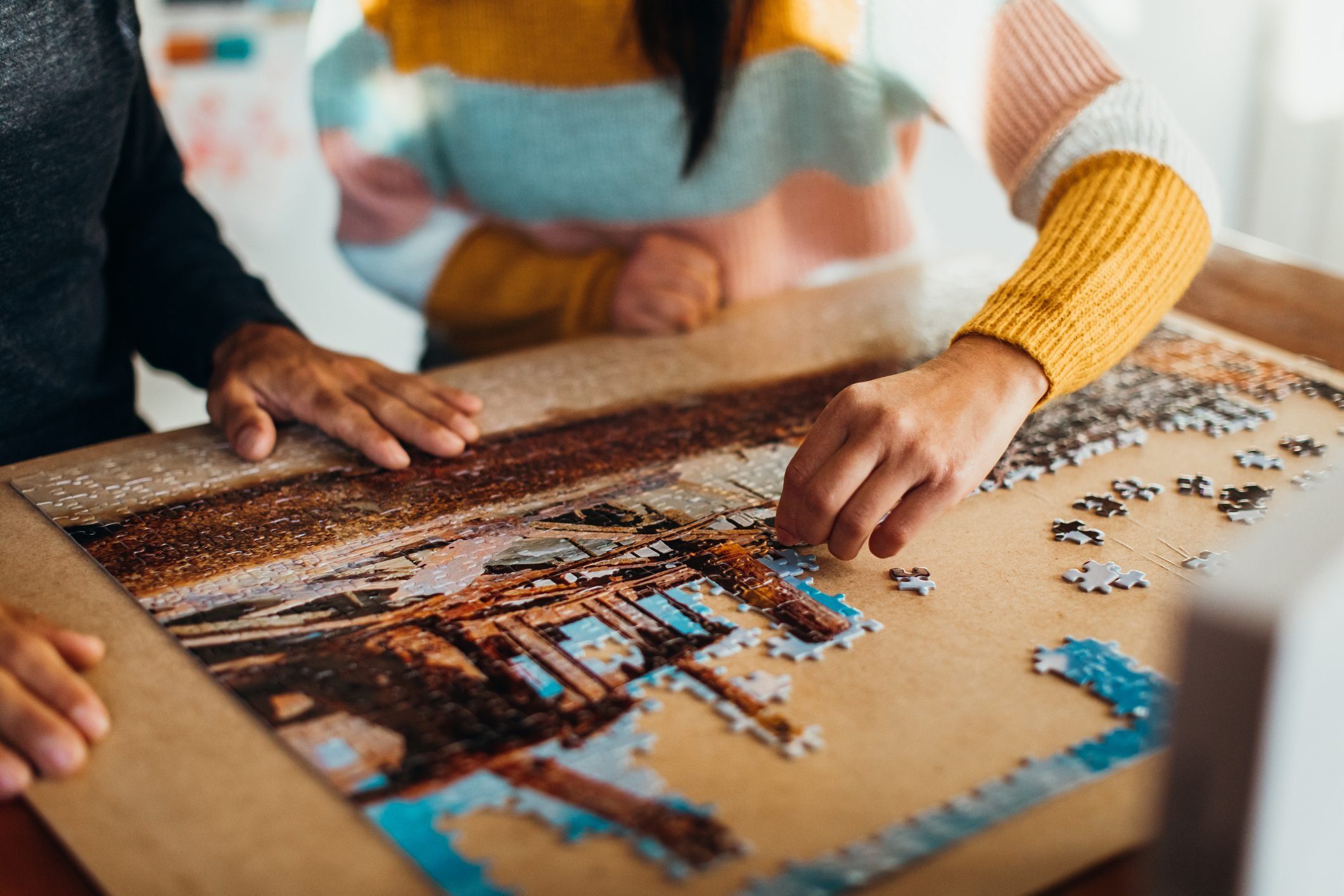
Find the missing pieces
Along with alcohol, sales of jigsaw puzzles have surged since the beginning of the pandemic. As early as April, some puzzle makers were actually sold out, with one company reporting a whopping 370 percent increase in sales from the year before.
Why? According to University of Toronto professor Marcel Danesi, there could be many reasons. One is that puzzles inject order into chaos which gives us a sense of control. And, let’s face it, right now things seem very, very out of control. Puzzles are also a distraction from the messy real world and are a way to have the mind and body work in tandem. When your head and hands are putting together the pieces, the confusion and uncertainty recede. And it’s a journey with an actual destination. (Here are other reasons why jigsaw puzzles are good for your brain.)
If jigsaws aren’t your thing, try adult colouring books (there are even pandemic-themed ones). One pre-pandemic study, published in February 2020 in Academic Emergency Medicine, found that people waiting in emergency rooms who coloured for an hour or so had less anxiety than those who didn’t. Emergency rooms and pandemics: both high-stress situations.
This is how to solve a jigsaw puzzle fast, with advice from champions.
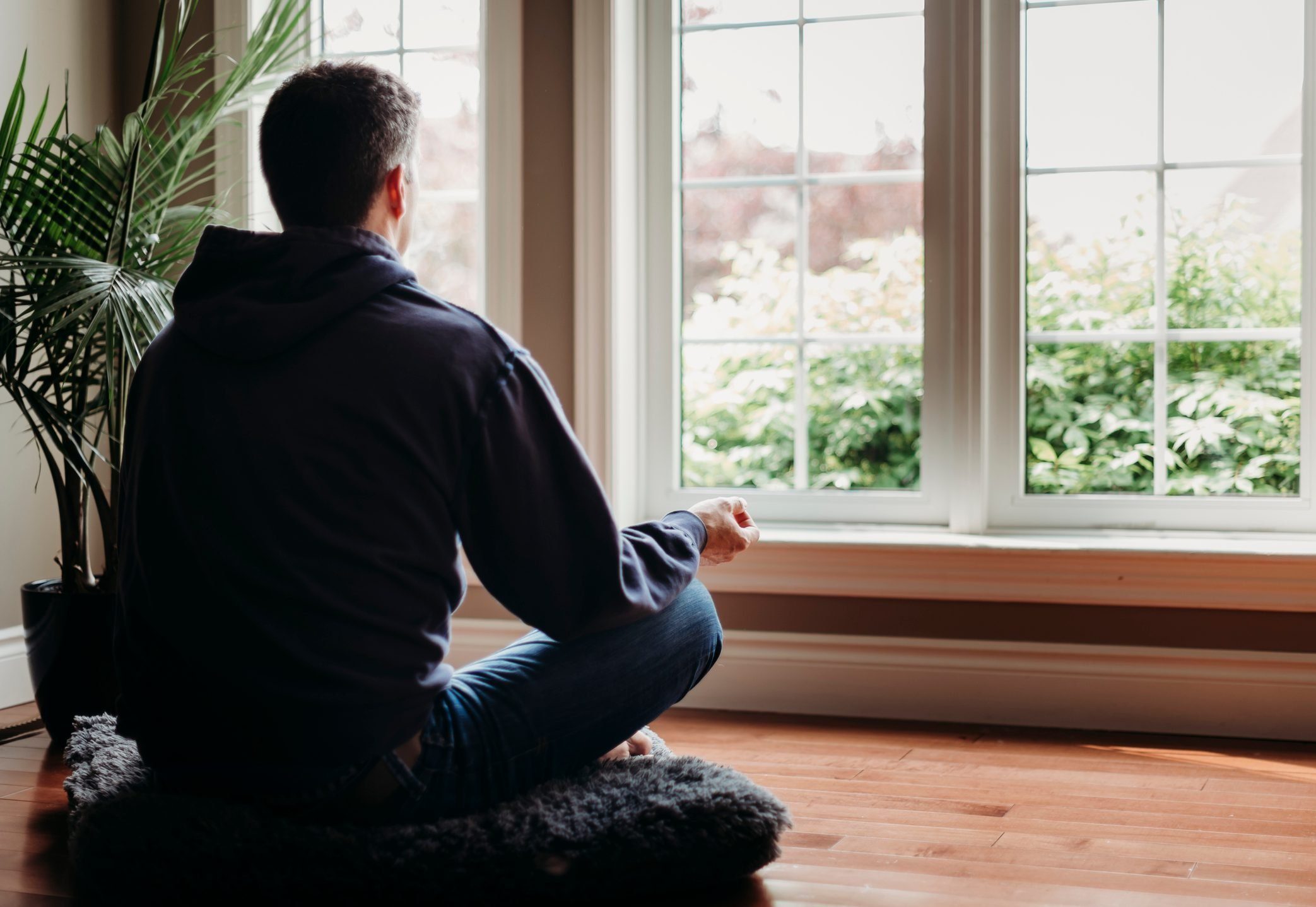
Practice meditation
If you thought meditating meant hours of sitting on the floor while your legs cramp up, think again. One study published in 2019 in Behavioural Brain Research found that only 13 minutes of meditation a day over eight weeks (and, yes, the pandemic will likely still stick around that much longer) elevated mood while curbing anxiety. If 13 minutes is too long, go with 10 minutes or even five, suggests LeMonda.
And you don’t have to go it alone. Try guided meditation for real-time instruction while you decompress.
Bear in mind that, for newbies, the practice can feel uncomfortable but that’s part of the point, says LeMonda. “It’s called ‘practice’ for a reason. It doesn’t come naturally or easily to most people,” she adds. “Recognize that it’s going to be a challenge, but it changes the way we think about things.”
Apps—like Calm and Insight Timer—can help.
Meditation can be active, too
If the idea of sitting still makes you want to reach for the wine bottle, try a more active approach. This could mean a walking meditation or progressive muscle relaxation. LeMonda often recommends both of these for beginners. “I tell patients to start with these because they’re a little more active,” she says.
Learn how to stay safe while taking a walk outside during COVID-19.
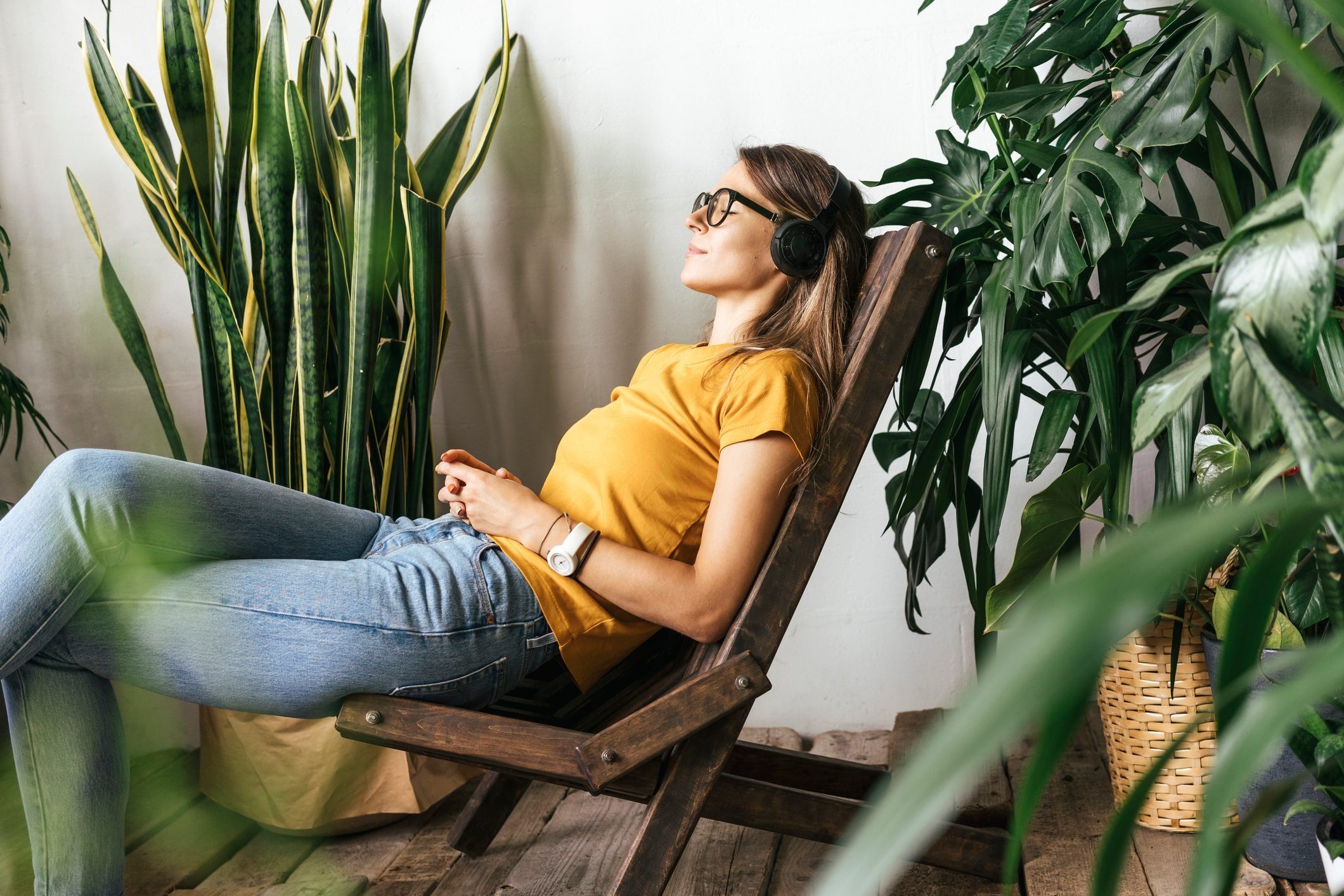
Take a breath or two
If five minutes still seems too long, shave it down to one minute, suggests Amanda Beaver, RDN, LD, a wellness dietitian at Houston Methodist Wellness Services. Her advice: Close your eyes and take a deep, slow breath in. Slowly breathe out and release any tension in your shoulders. Then take two slower, relaxing breaths. There are also variations on the theme: With your eyes still closed, imagine your partner, friend, loved one, or parent smiling at you, suggests Beaver. You can also call to mind the kind things they say and do for you and smile back at them. Or you can simply imagine that warmth and kindness as a glow around them. (This is how to stop the damage of negative self-talk.)
Positive affirmations can take less than a minute. “Our thoughts can greatly influence our mood and outlook,” says Beaver. So does just stopping and observing what’s going on around you. “Step away from your desk or out your front door and notice the colour of the sky,” she says. “Observe how leaves blow gently in the wind. Notice how the warmth of the sun feels on your face.”
Here are 12 confidence lessons that you can learn at any age.
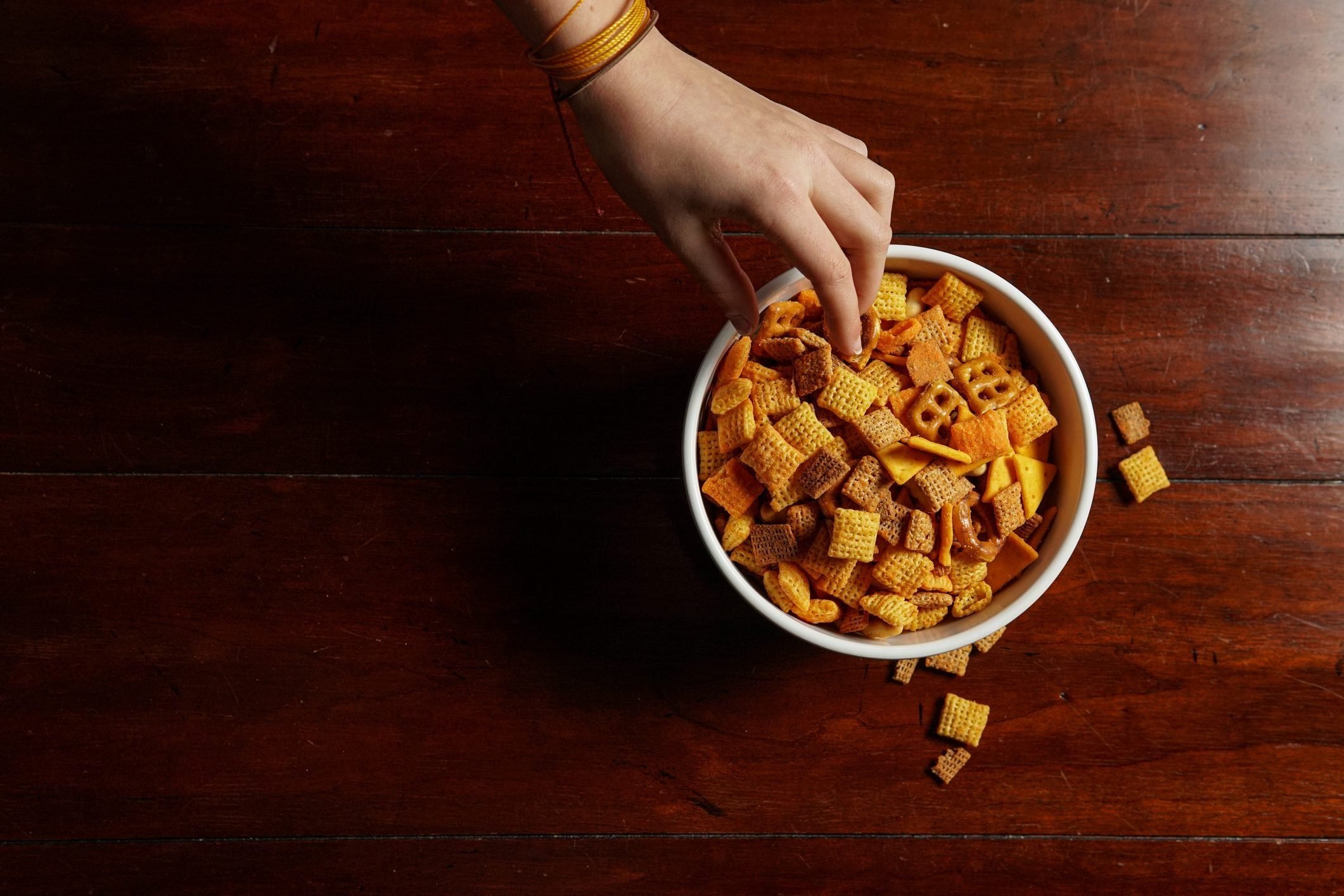
Look at your food
Literally. Alcohol isn’t the only supposed “quick fix” for the pandemic blues. A lot of us are reaching for food, as well. And it’s not all healthy and wholesome. Sales of Oreos and crackers were up in the first quarter of the year. There are, of course, healthier snacks to be had. Apples, for instance, look and taste delicious with two tablespoons of peanut butter. Whatever you’re eating, take a moment and observe. (Read about the seven incredible health benefits of apples.)
“Try looking at your food,” says Beaver. “When you have a taste, notice the texture. Is it crunchy or creamy? Think about the flavor. Is it salty, sweet, or savoury? This is one way to practice mindfulness and disconnect from stressful thoughts.”
Here are eight of the best heart-healthy foods to lower cholesterol.

Don’t take exercise so seriously
“Exercise” is right up there with “meditation” when it comes to the intimidation factor. But exercise can be something as simple as running up and down your stairs or walking around the block for 10 minutes. A study, published in 2018 in Health Promotion Perspectives, found that 10 minutes of brisk walking improved mood, compared to not being active at all. (This is how yoga and aerobic exercise can reduce your heart disease risk.)
“Exercise has been shown to actually change the brain structurally,” says Julia Chester, PhD, professor of psychological sciences at Purdue University in West Lafayette, Indiana. “It’s healthy for your brain because it increases oxygen, blood flow and hormones that support the neurons in your brain.” Exercise also helps you to see your world in a different way. “When your stress goes down, you feel better able to control your environment,” adds Chester. “That can help you to make better choices.” Sort of like a jigsaw puzzle.
Try these 11 ways to make walking less boring.
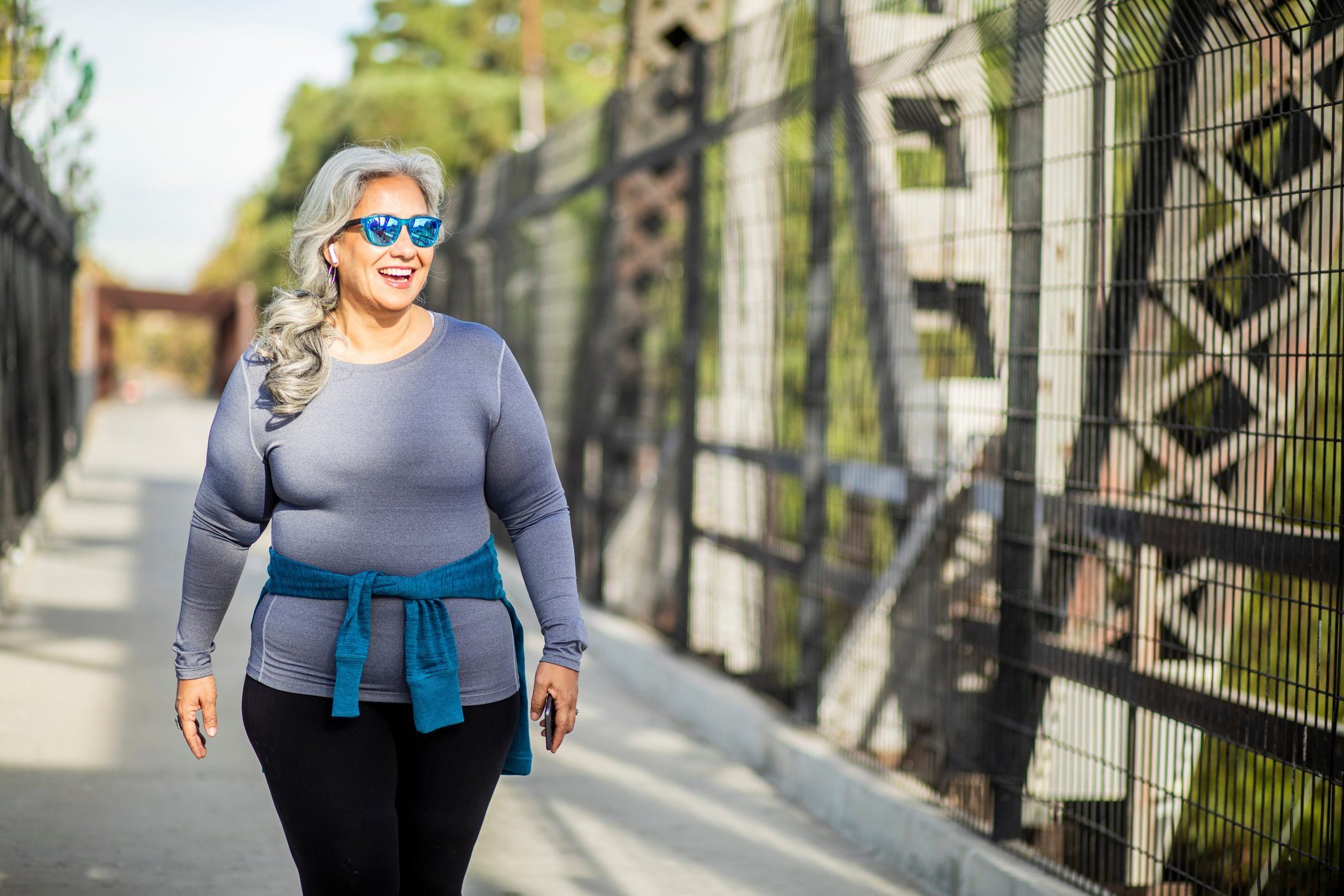
Enjoy the sun
You could do this by walking, or just sitting in the sun. “Sunshine actually stimulates receptors on the back of the retina that stimulate hormone release and helps us regulate sleep patterns,” says Chester. “Sleep is really integrated with overall health.” Good, solid sleep may also reduce the urge to reach for that bottle of wine. “When we’re not getting restful sleep, we may be more likely to be impulsive and turn to a substance or start using it to help us go to sleep,” she adds. (If you’re waking up with anxiety at night, here’s what to do.)
There are other benefits to enjoying the sun responsibly. Sunlight triggers the release of serotonin (the feel-good hormone) and triggers Vitamin D synthesis which may help prevent osteoporosis. Of course, always enjoy the sun in conjunction with broad-spectrum sunscreen, a hat and sunglasses.
Watch out for these six signs you’re not getting enough sunlight.
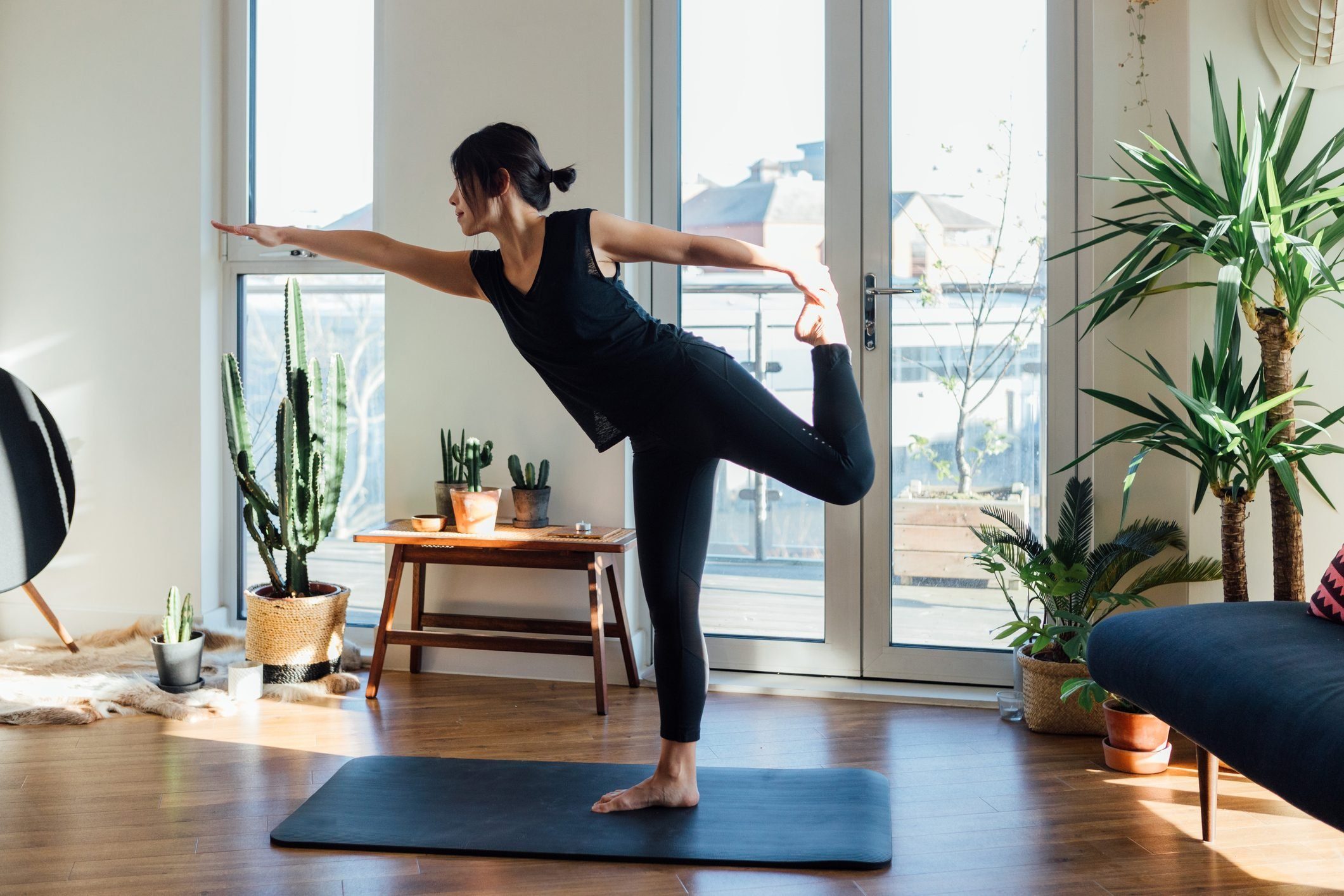
Strike a pose
A yoga pose, that is. Yoga can relieve stress, lift your mood, improve sleep, reduce pain and so much more. But what if there are no socially distanced classes near you or you’re not ready to tackle a whole hour of virtual contortions in your living room?
Just as one breath can change your mindset, one yoga pose can shift the tide. Downward facing dog is a good one. “When you get in that position with your head hanging down, you relax,” says Chester.
Stretching before going to bed can help ensure the right kind of sleep, another way to fend off stress. Try sitting with the bottoms of your feet touching. Put your right hand next to your right hip and lean to the right while lifting your left arm above your head. Do this on both sides. Or lie down with the bottoms of your feet touching. Put your hands on your stomach and just breathe.
Here’s how to relieve stress based on your zodiac sign.
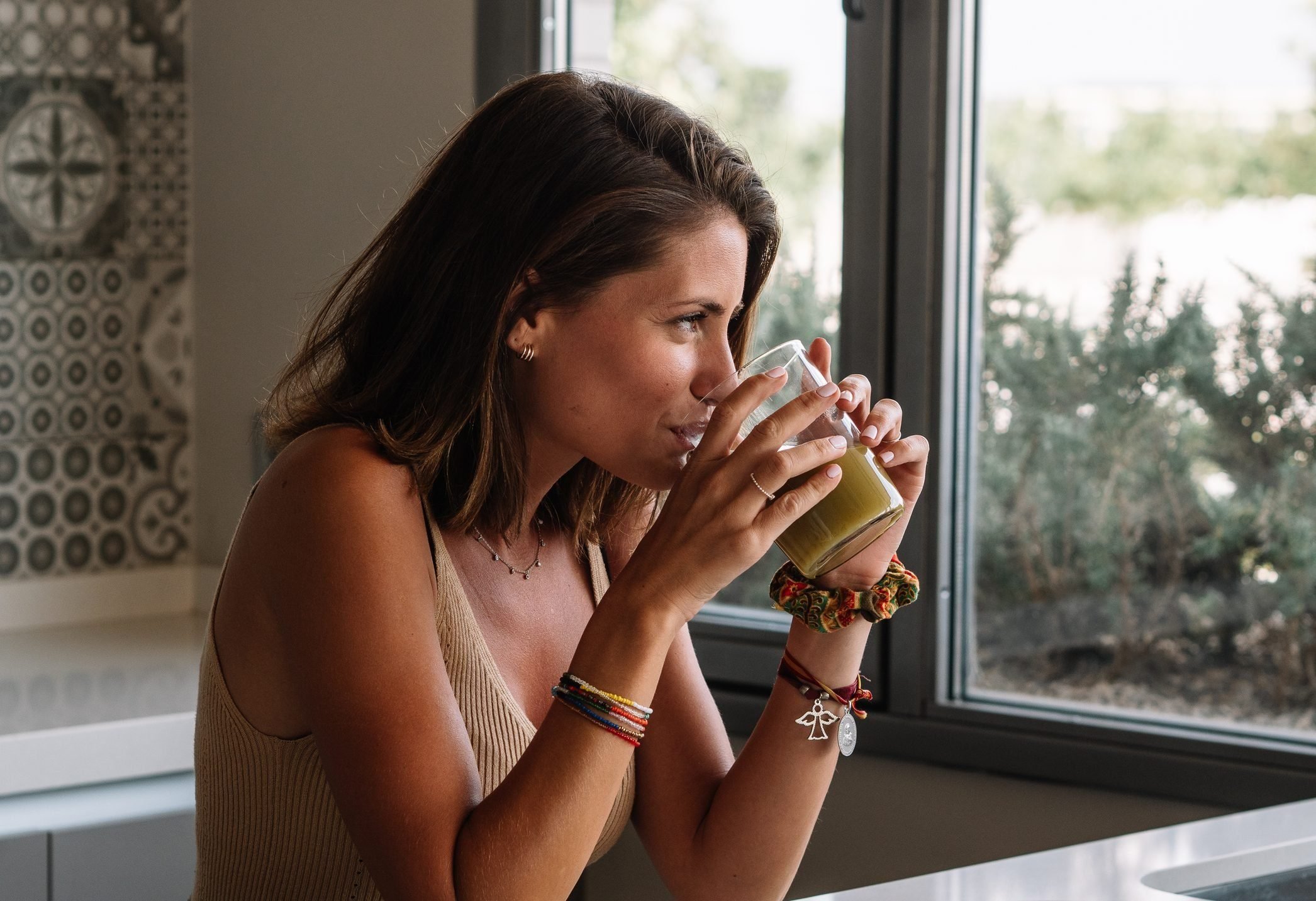
Create a non-alcoholic buzz
Who says you have to drink alcohol to feel a little buzzed? Try this alcohol-free recipe from bartender Fanny Chu of Donna Brooklyn Cocktail Bar, called Hey Bey Bey. Put two ounces of watermelon juice, 3/4 ounce of bread-and-butter pickle brine, and half an ounce of lime juice in a shaker filled with ice. Shake and strain into a Collins glass over ice. Top with tonic water, stir and garnish with a cucumber.
“Like a cocktail, it is balanced with the right amount of sweet, tangy, briney, veggie, bitterness, and tartness,” says Chu. ” When watermelon is in season there is no need to add sugar. You get it au natural.”
Or a “lazy” alternative
Not in the creating mode? Beaver recommends picking up a “lazy” drink at the store. This could be kombucha or even “drinking vinegar,” often in the same aisle as kombucha. Simple sparkling water in whatever flavour you favour can mimic the effects of alcohol, with lime to feel like a margarita. Craft beers are also going non-alcoholic, says Chester.
Discover these 25 ways to relax without spending a dime.
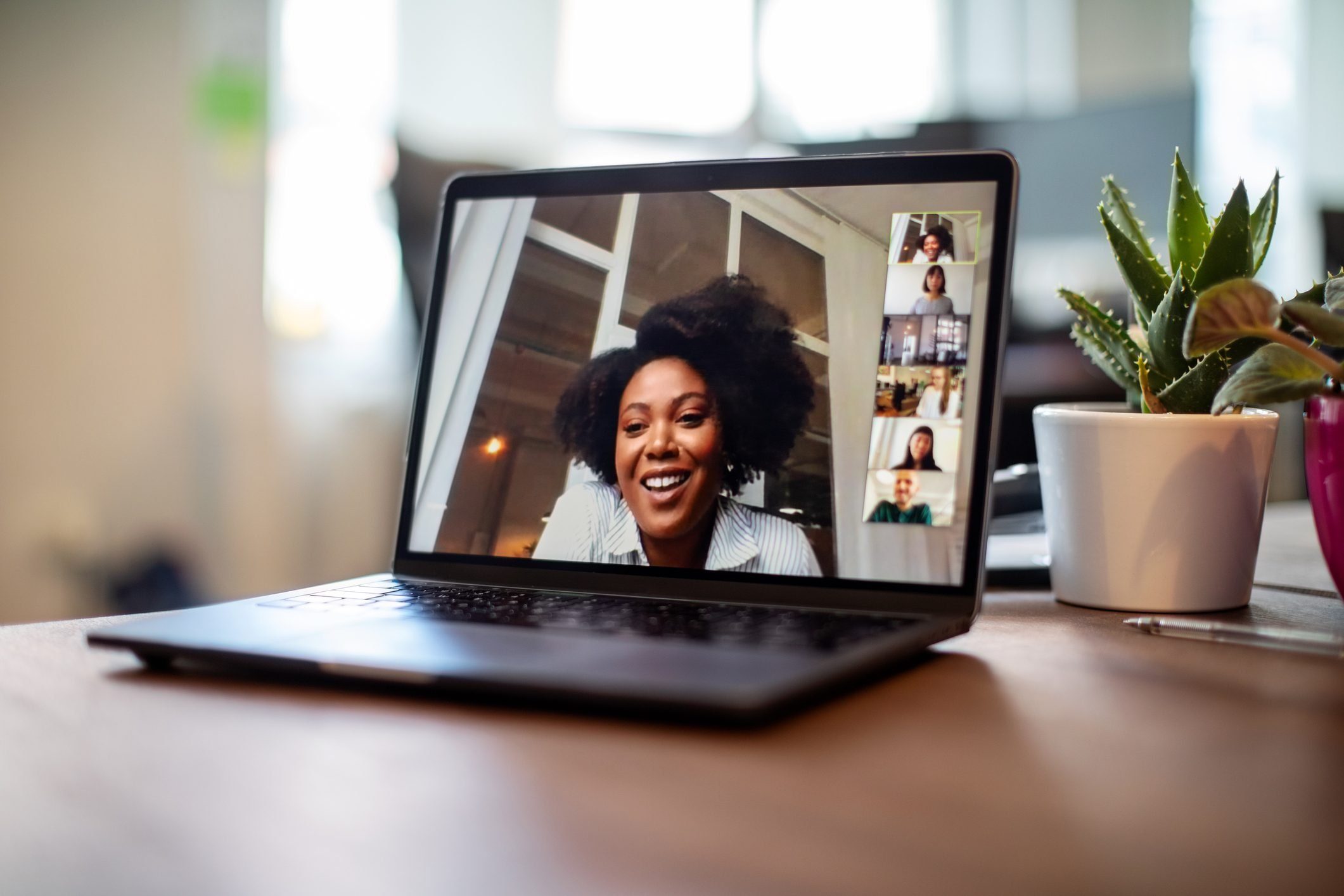
Host a “dry” Zoom meeting
There are other things to do on Zoom besides drink. “People have played games over Zoom. They’ve cooked the same meal and enjoyed the same meal over Zoom,” says LeMonda. “People have streamed Broadway shows over Zoom. There are a lot of things we can do via Zoom and other technology that don’t involve alcohol.” (These are 10 things that could stay virtual forever.)
The main reason is to maintain social connections which are so important to our health. Loneliness has been linked with high blood pressure, heart disease, infections and cognitive problems. It may be twice as hard to maintain a community during the pandemic, but there are creative ways to do it. The pandemic has even provided some new opportunities for social connection through virtual classes, poetry readings, book clubs and musical events. And don’t forget old-fashioned phone and video calls to beat back isolation.
Read more about how to cope with loneliness during COVID-19.
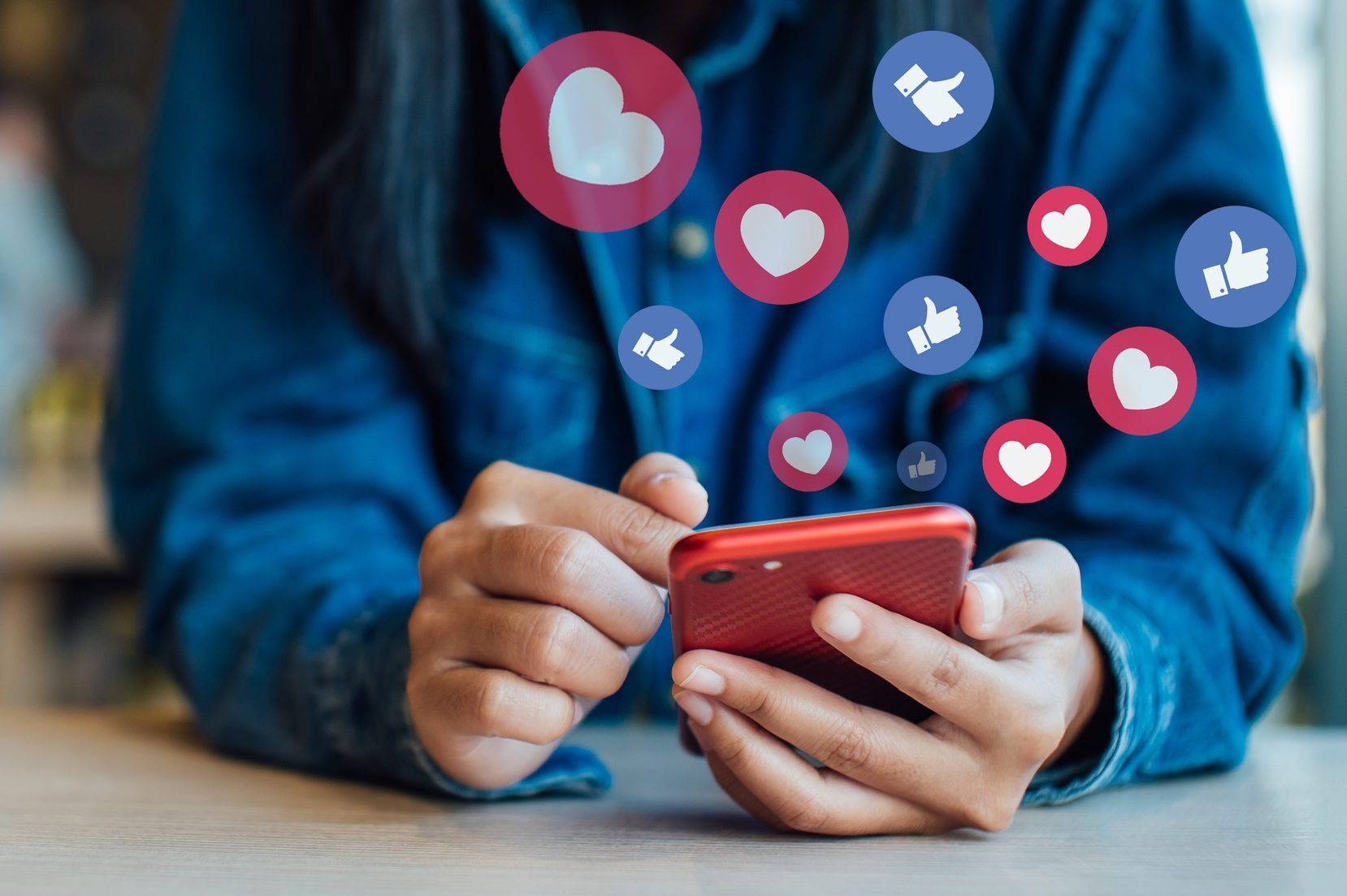
Switch off your phone notifications
“It’s important that we all stay abreast of current information, but you can be inundated,” says LeMonda. Especially when you’re being bombarded by social media alerts on your phone, your computer, and possibly even your smartwatch. And so much of it is distorted: “If you’ve ever played a game of telephone, the message you started with is not the one you ended up with.” The easiest way to avoid the onslaught: Limit your time on social media and the news and take the time to choose reliable news sources.
“It’s probably impossible to avoid it entirely,” says LeMonda “I recommend tuning out at night before bed so you have time to decompress and get good sleep. Ideally, your bedtime routine is about two hours, including having tea, relaxing, washing up getting prepared for the next day.” And take breaks throughout the day. Put your phone away or on airplane mode.
Next, here are 10 herbal remedies for stress relief.